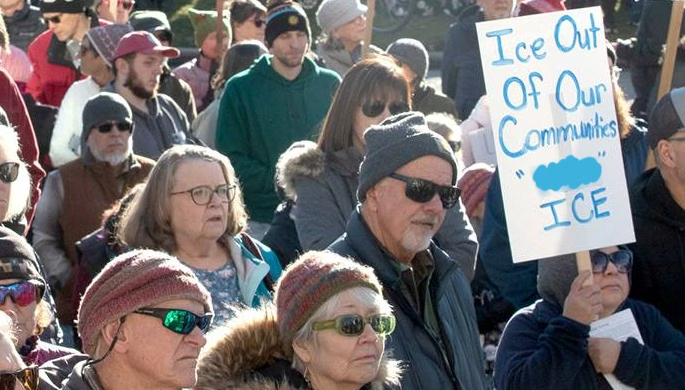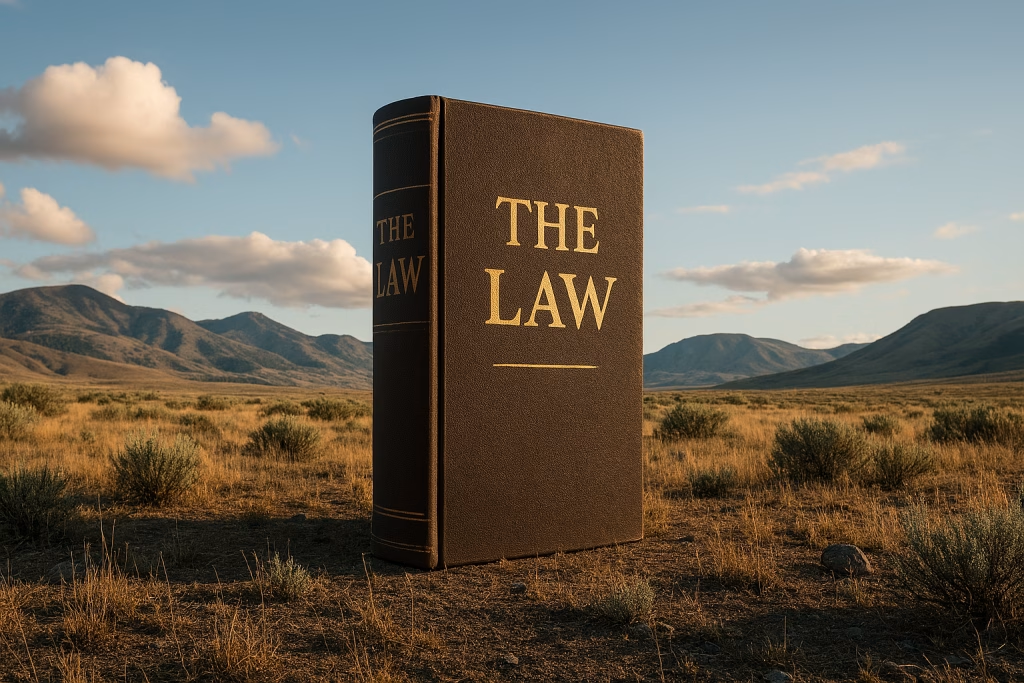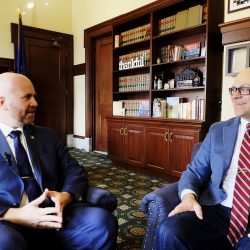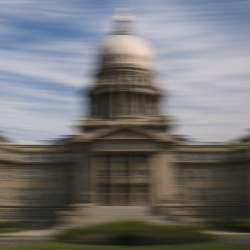This post is sponsored by People United For Privacy. However, the content was entirely written by me, Brian Almon, and accurately represents my views.
Earlier this month, the Idaho Republican Party approved a resolution condemning “dark money” in politics. Resolution 2024-14 was crafted in response to several attack ads against conservative senators published by a political action committee (PAC). The resolution calls upon the Idaho GOP to reaffirm our state’s Sunshine laws and condemn the use of so-called “dark money” in politics, and additionally calls for the prohibition of funneling such money through PACs.
I was one of the first to report on how money flowed through several hands before landing at the Idaho Liberty PAC, which published mailers and door-hangers accusing Senators Brian Lenney, Chris Trakel, and Tammy Nichols of voting like California liberals.
More transparency sounds great, right?
Not so fast.
The phrase “dark money” was leftist rhetoric from the start, so it’s unnerving to see it used on the right. There was a time when Republicans believed that donating money to political causes was a private matter, while Democrats sought to name and shame those who contributed to the “wrong” things.
In 2002, Congress passed the Bipartisan Campaign Reform Act (BCRC), sponsored by Democrat Sen. Russ Feingold and Republican Sen. John McCain. This act created onerous restrictions on how organizations could use their money to advocate for political positions or candidates.
Part of the BCRA was struck down in 2010 when the Supreme Court ruled 5-4 in Citizens United v. FEC that preventing organizations from spending money for political purposes was an infringement upon their freedom of speech. While it was easy to mock Mitt Romney for saying “corporations are people,” he had a point — corporations and organizations are made up of people who have pooled their resources in pursuit of a shared goal.
It was in response to the Citizens United decision that leftists, worried about such groups challenging their near-hegemony of news media, began denouncing so-called “dark money”.
Let’s say that you and your friends are concerned about a particular issue being debated in the Legislature, and you want to educate voters and lawmakers about the details of that issue. You could each write your legislators, or record a video, or whatever else, but what if you instead chose to pool your resources to amplify your message. You could form a 501(c)(4) nonprofit with you and your friends as the board of directors and each donate some money to get the organization off the ground. Then the organization itself could spend money on social media ads to carry your message to more people.
What if some of your other friends and neighbors like the work you’re doing and want to contribute? Should their names and addresses become part of the public record, simply because they donated to an organization that was engaged in political activity? In this world of cancel culture, swatting, and other threats to life and livelihood, that is potentially very dangerous.
Consider the case of Brendan Eich. A technical genius, Eich created the JavaScript programming language and co-founded Mozilla. However, Eich was forced off the board at his own company when it was revealed that he had donated $1,000 to California Proposition 8, a constitutional amendment to codify marriage as being between a man and a woman.
Eich landed on his feet, going on to create the Brave browser, but not everyone is so lucky. A police officer in Norfolk, Virginia named William Kelly was fired when a local news organization received hacked materials from a crowdfunding website which revealed he had donated a mere $25 to Kyle Rittenhouse’s legal defense fund.
In 2021, Republican lawmakers in North Dakota killed a bill that would have required many nonprofits to reveal the names and addresses of their donors. However, some of those Republicans changed their tune when a nonprofit began sending mailers attacking them over an unrelated vote. “I need to know who my enemies are,” said Republican Sen. Jeff Magrum. Thankfully, that bill died as well.
In 2012, a New York newspaper published a list of names and addresses of citizens who had received permits to own handguns in the city. What do you think Idaho’s leftist newspapers would do if they got hold of the donor list for organizations such as the Idaho Freedom Foundation or Citizens Alliance of Idaho?
Disclosure laws not only threaten private citizens who wish to donate to 501c3 and 501c4 nonprofits, they act as a chilling effect on future political activity. Would Norfolk police lieutenant William Kelly have donated money to Kyle Rittenhouse’s defense fund if he knew it would become public knowledge? Would you give your money to the Idaho Freedom Foundation on the right or the American Civil Liberties Union on the left if there was a possibility that your name and address might end up in the newspaper or on someone’s blog?
The best way to look at this issue is not that we need to root out “dark money,” but rather we must protect donor privacy. Americans have the right to donate to causes they believe in without their names and addresses becoming part of the public record. Indeed, in 2021 the Supreme Court held in Americans for Prosperity v. Bonta that nonprofits were not required to share their donor lists with state governments. Our right to privacy is just as important as our right to free speech.
The right question to ask is why are lawmakers, government officials, and journalists so interested in learning who donates to organizations that are engaging in political speech? I think you know the answer.
Idaho has a reasonably strict reporting system for candidates and political action committees (PACs). Candidates and PACs must appoint their treasurers and file regular reports of all donations and expenditures. On the other hand, 501(c)(3) and 501(c)(4) nonprofits are not required to do so. (501(c)(4)s can be required to report their donations and expenditures under certain circumstances, such as if they engage in electioneering or conduct operations within 30 days of an election.)
Despite the political advantage that the information in the Sunshine website provides, it’s still an infringement upon our freedom of speech that we’re required to share our name and address when donating to a political candidate or PAC. While I will take full advantage of the tool as it exists, I would rather go back to the old ways when a person’s contributions were private.
We all must ask ourselves how far we will allow our government to go in invading our privacy in the name of transparency and convenience. Our votes are still private, so why shouldn’t our contributions be private as well?
America has become a much more privacy-conscious society in the past few decades. I’m old enough to remember when the telephone company published a free book with the names and addresses of everyone in your community. That would be unthinkable today. The speed at which information can be collected and the viciousness in which political mobs attack those they disagree with makes such openness untenable, even dangerous.
I’m sure that the backers of Idaho GOP Resolution 2024-14 have good intentions. We are all naturally curious as to who is funding attacks on good people. But you know what they say about good intentions. Let us instead stand up and say that the privacy of donors who give their hard-earned money to causes they believe in is more important than short term political gain.
Conservatives do not fear free speech, and we should not fear the money behind that speech either. The answer to speech is more speech, so the answer to money should be more money. Perhaps instead of worrying about where our opponents are getting their cash, perhaps we should start ponying up our own instead.
Click here to learn more about People United For Privacy.
Bonus note for paid subscribers is available at Substack.
About Brian Almon
Brian Almon is the Editor of the Gem State Chronicle. He also serves as Chairman of the District 14 Republican Party and is a trustee of the Eagle Public Library Board. He lives with his wife and five children in Eagle.













